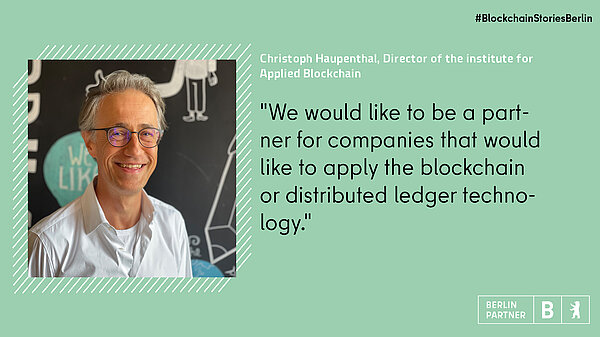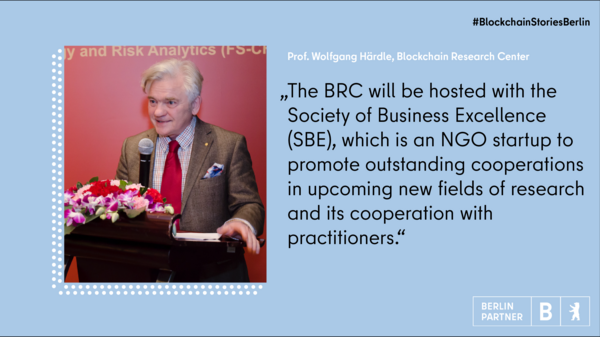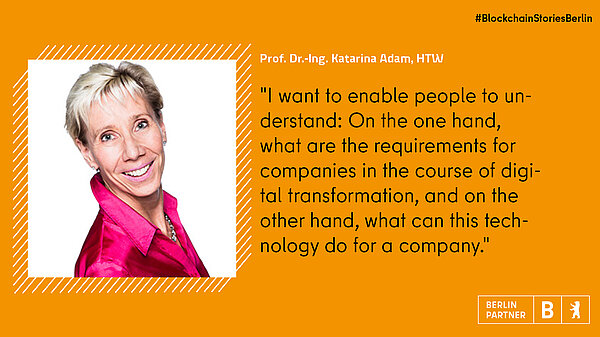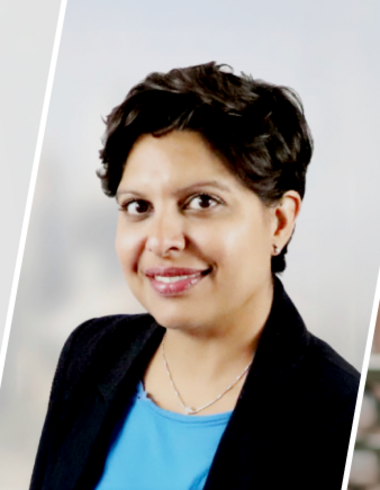Berlin's higher education landscape is one of the most innovative scientific regions in Europe. More than 200,000 students from all over the world study and research at the numerous universities and state-recognized colleges. Berlin, the "city of knowledge," therefore offers optimal conditions for researching new, advanced technologies on site and for networking with players from science and industry worldwide.
Blockchain technology, which is already strongly promoted in Berlin's startup scene, has taken on increasing importance in university research in recent years. It offers enormous potential for cooperative research projects, exciting teaching opportunities, and innovative think tanks. We spoke with selected universities such as Humboldt-Universität zu Berlin (HU Berlin), Digital Business University of Applied Science (DBUAS) and Hochschule für Technik und Wirtschaft Berlin (HTW) to find out where exactly blockchain technology is being applied in academia and how the research field is being integrated into degree programs practically.
Institute for Applied Blockchain (IABC)
The Institute for Applied Blockchain (IABC), for example, is regarded as a center for education and training around technology solutions and application fields of blockchain. In addition to teaching, as taught to students in the elective module "BlockchainLab@DBU", blockchain is also the focus of research. Christoph Haupenthal, Institute Director, elaborates on IABC's role in Berlin's research landscape as follows:

"To this end, we offer specific training, continuing education programs, and application-oriented research projects." Haupenthal cites three topics in particular as the institute's research priorities:
- Track & Trace solutions along supply chains
- Digital identities and certificates
- Token Economy
Christoph Haupenthal has also been actively teaching and founding blockchain companies for over 20 years and is therefore considered an expert in the field. Since 2020, he has accompanied the Deep Tech Award as a jury member in the Blockchain category, where he evaluates Berlin-based companies and their products and solutions. On the question of how Haupenthal uses the IABC to promote education and training on the topic of blockchain, he explains,
"In addition to teaching students, we offer lectures for companies and users. We also conduct workshops on the development of use cases. We also support companies by preparing studies to evaluate the potential and risks of using blockchain."
Blockchain Research Center (HU Berlin)
When looking for Berlin universities with a blockchain connection, one cannot avoid the Humboldt University of Berlin (HU). Prof. Wolfgang Härdle teaches at HU Berlin and focuses on applied statistics, econometrics and quantitative finance. He is also a co-founder of the Blockchain Research Centers (BRC). This was jointly founded by HU Berlin and the University of Zurich (UZH) to promote discourse between blockchain experts from academia and industry. In addition, HU Berlin itself also offers courses such as "From Bitcoins to IOT - an introduction to the digital issues of our time" and "Blockchain and cryptocurrency" to investigate blockchain applications and to impart basic knowledge in this field to students.
Prof. Wolfgang Härdle knows how important the emergence of cooperations and international think tanks is within the university landscape: "The BRC is a distributed network of nodes building the Blockchain Research Network, which was created as an academic partnership between researchers at UZH (U Zürich) and HU Berlin. Initially located at HU Berlin, the founding idea was to provide researchers worldwide access to the plethora of blockchain related research data and to make it accessible to the members of the BRC."
He further states: "Our current step forward it to include the BRC of the thriving blockchain activities of Bucharest, Romania to gain research and profits from it being the incubator of most advanced, yet under researched, technologies in Europe."

In conclusion, the BRC works as a think tank that brings together experts from all over the world. We asked what Prof. Wolfgang Härdle and the BRC specifically contribute to the further development of blockchain technology, and what role the blockchain capital Berlin plays in this collaboration?
"Beside the already mentioned new hosting of the BRC with the SBE, there are a lot of further international science hubs and research nodes of the BRC - most notably the next members of the cluster will be NUS National University Singapore and U Warsaw. […] Berlin will still play a key role in this network, as it provides the fundamental incubator and data base for ongoing operations. Especially the transparent connection of data with algorithms and software via Quantlet.com as well as the connection of research and teaching, in academia and professional surroundings, via Quantinar.com are of note.
The BRC also provides us the chance to offer the young generation of academics to work on subjects and within an environment, that tackles modern issues hands on, like the combination of energy and environmental questions. We hence provide not only a horizontal, but especially a vertical integration of our research endeavours."
He concludes by adding: "All of this would not be possible to provide, if we would not be able to support our roadmap through the extensive research networks in academic and in the industry."
Berlin University of Applied Sciences
Another research location that has both knowledge transfer and research into blockchain technology on its agenda is the Berlin University of Applied Sciences (HTW). Prof. Dr.-Ing. Katarina Adam researches and teaches at HTW and teaches a course on "Business Blockchain Development" every semester, which is very well received by students. Her motivation:

Next to the fact that interest in and demand for blockchain seminars in general are on the rise - Prof. Adam also notices this among her students: "Students are increasingly questioning blockchain technology and there are more students from other courses of study who would like to dedicate their final thesis to the topic. [...] For me, these are signs that something is happening. Awareness of blockchain is now trickling through more and more." Due to the increasing interest, a new blockchain-related degree program "Cyber Security" is also expected to find its way onto HTW's university agenda in the near future.
In addition to the students' increasing thirst for knowledge, there is also growing interest from companies in the business world in the ideas and approaches to solutions that are created as part of the university courses. For example, there is already cooperation with SAP and the HTW, with other companies to follow. But how exactly does the collaboration between universities, research institutes and companies in Berlin work, Ms. Adam?
"It's always about looking at processes together and thinking about how these processes can be improved. That's a win-win situation for everyone involved. The students not only learn the theoretical basics, but can also test themselves and their ideas in reality, i.e. in exchange with companies. Companies, on the other hand, benefit from the sometimes unusual ideas and unbiased approach of the students."
Accordingly, it is evident that the range of offered blockchain courses in Berlin is increasingly growing and being expanded. Nevertheless, the topic of blockchain is not yet a priority in higher education institutions. Regarding further integration into the university program, Prof. Dr.-Ing. Adam states, "It would of course be nice if the universities could offer training that teaches what [...] blockchain technology means, how [...] these solutions can then also find their way into the economy. That students learn what knowledge they need for this. That can definitely be expanded at the moment."
Prof. Adam, what does this ultimately mean for the higher education landscape in Germany? "Pure blockchain technology study programs are rare, however, even in master's programs: there are about four universities across Germany that offer a master's in blockchain technology. By comparison, there are over 70 private and public universities in Berlin. So there's still a lot of potential to be able to impart knowledge in this field at all."
Another problem that Prof. Adam also notices in this regard is the increasing complexity of blockchain technology, which almost acts as a deterrent to outsiders: "Absolute expert knowledge is being built up, which is difficult to share because large sections of society have not yet dealt with the basics of the technology enough. This creates a gap: on the one hand, those who [...] grasp the complexity, and on the other hand, those who shy away from the very complexity. So that's why we need the broad understanding of blockchain technology. It's about creating awareness of what this technology actually is."
According to Prof. Adam, HTW is one of the frontrunners in this regard, as the actual "Blockchain Business Development Approach" is taught there. Here, students learn to figure out whether a blockchain solution is needed. If so, how it has to be set up, what the requirements are and how the Blockchain can ultimately lead to an optimization."
Past projects also prove that HTW is one of the promoting universities in the transfer of blockchain knowledge. For example, from April 2018 to December 2020, the PABlo research project ran under the direction of Prof. Dr. Heike Marita Hölzner, whose goal was to scientifically analyze the potential of blockchain technology for SMEs. With cooperation partners such as the University of Applied Sciences (BHT) or Bitkom e. V., the project was able to benefit from a large network and knowledge transfer.
Likewise, the Blockchain@HTW Conference organized by the university in the summer of 2021 showed how important it is to actively promote a digital transformation and to network experts from research, science and business. The continuation of the conference planned for September 9, 2022, is also oriented toward these goals.
Looking to the future: Increased cooperation with universities as innovation drivers
The Blockchain Research Center (HU Berlin), the Institute for Applied Blockchain (IABC) and the Berlin University of Applied Sciences exemplify how many research institutions in Berlin are already taking a closer look at blockchain technology. Nevertheless, according to Christoph Haupenthal, there is a lot of catching up to do in Berlin's research landscape for the future: "We would like to see even more intensive networking between research and business, as we believe that the best development can only happen together. Therefore, it would be desirable to have even more match-making and networking events, which we hope could become increasingly easy with the decreasing Corona restrictions."
Prof. Dr.-Ing. Adam also has a resolution for the future: "I would like to see more companies using collaboration with universities and thus also benefiting from the ideas of young, motivated and creative students. This innovative thinking helps the economy."
For more info, check out the college websites and the links listed:
Institute for Applied Blockchain (DBUAS), https://dbuas.de/iabc-institut/
Blockchain Research Center (HU Berlin), https://blockchain-research-center.com/
HTW, https://www.htw-berlin.de/
Projekt PABlo (HTW), https://www.ifaf-berlin.de/projekte/pablo/#projektdetails und https://www.htw-berlin.de/forschung/online-forschungskatalog/projekte/projekt/?eid=2586
Blockchain@HTW Conference, https://blockchain.htw-berlin.de/wordpress/




